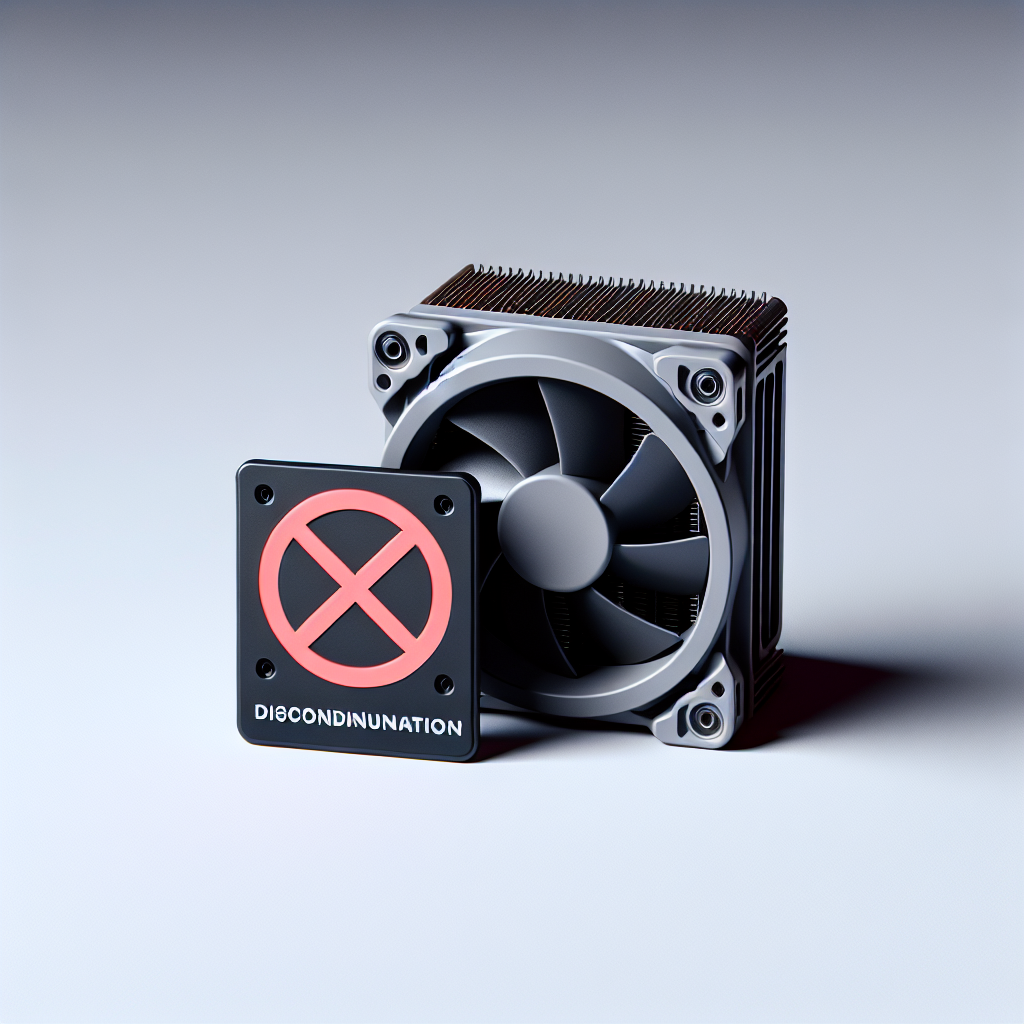Intel RS1 Laminar CPU Cooler Discontinuation Marks Shift in Cooling Strategy

Intel Ceases Production of Entry-Level RS1 Laminar CPU Cooler
Intel has officially announced the discontinuation of the RS1 Laminar CPU cooler, a move that signals a strategic shift in the company's approach towards CPU cooling solutions. The RS1, which made its debut alongside Intel's 12th-generation processors in 2021, provided an economical cooling option with its aluminum construction, 47 mm profile, and a five-blade fan design. Despite its lightweight build of 260 grams, it was designed to meet the cooling needs of Intel's dual-core processors with a 46 W TDP, namely the Pentium Gold G7400 and Celeron G6900.
The phase-out of the RS1 cooler is largely driven by its limited applicability, as its cooling capacity was tailored specifically for the aforementioned processors. As the tech industry rapidly evolves, Intel has decided to opt for solutions with broader market appeal. Enter the RM1 cooler, which will now serve as the standard cooling solution across Intel's locked CPU lineup ranging from Core i3 to Core i7 processors, covering 12th to 14th generation CPUs.
The Rise of RM1 as Intel's Standard CPU Cooler
The RM1 cooler, which inherits the footprint of its predecessor, introduces an improved cooling performance thanks to the incorporation of a copper base plate for better thermal transfer. Additionally, it features an LED accent light, meeting both technological and aesthetic upgrade expectations. This move not only standardizes Intel's cooling solutions but strategically aligns them with modern efficiency and performance standards.
The transition is part of Intel's broader effort to streamline production, reduce costs, and maximize efficiency by focusing on parts that afford greater compatibility across its varied processor lineup. Markets that benefit from this shift include system builders and end-users, as they experience minimal impact from the discontinuation, given that the RM1 offers better performance.
Implications for the Tech Industry
This discontinuation and subsequent replacement could hint at Intel's strategic positioning in the competitive CPU market. The move reflects an ongoing trend within the tech industry towards modular and versatile components, capable of catering to a wider array of applications—a response to a market that demands more inclusive technological solutions.
As Intel continues to innovate within the realm of cooling solutions, the company maintains a competitive edge, adapting to both advances in processor technology and market needs. The introduction of the Intel Processor 300, essentially a rebranded Pentium G7400 paired with the RM1 cooler, underscores Intel's intention to phase out the RS1 thoughtfully.
Overall, Intel's shift in cooling strategy serves as a reminder of the dynamic nature of technology and how market demands continually shape product development and availability. As older models like the RS1 phase out, they make room for more efficient and versatile solutions, aligning consumer expectations with technological capabilities in an ever-evolving market landscape.



Comments ()